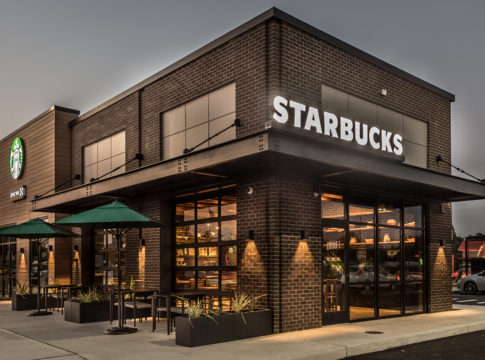Starbucks Corporation (NASDAQ: SBUX) today reported financial results for its 13-week fiscal third quarter ended June 28, 2020. GAAP results in fiscal 2020 and fiscal 2019 include items that are excluded from non-GAAP results. Please refer to the reconciliation of GAAP measures to non-GAAP measures at the end of this release for more information.
“Since the beginning of the COVID-19 outbreak in January, we have taken a principled approach to navigate the crisis, true to our mission and values. Every step of the way, we have thoughtfully addressed the needs of Starbucks stakeholders and are particularly proud of the industry-leading investments we have made to support our partners while creating a safe, familiar and convenient experience for our customers. Starbucks partners have risen to the occasion, and our near-term focus is to recover sales safely and responsibly by offering our customers the comfort and care that differentiate the Starbucks Experience,” said Kevin Johnson, president and ceo.
“We are pleased to share that the vast majority of Starbucks stores around the world have reopened and our global business is steadily recovering, demonstrating the relevance of the Starbucks brand and the trust we have built with our customers. As we continue to drive the recovery, we are also building resilience for the future by accelerating the transformation of our business in ways that will elevate the customer and partner experience and drive long-term growth. We firmly believe that we are well positioned to regain the positive business momentum we had before the pandemic began and look forward to reigniting our ‘Growth at Scale’ agenda,” concluded Johnson.
Q3 Fiscal 2020 Highlights
- Global comparable store sales declined 40%, driven by a 51% decrease in comparable transactions, partially offset by a 23% increase in average ticket
- Americas comparable store sales declined 41%, driven by a 53% decrease in comparable transactions, partially offset by a 27% increase in average ticket; U.S. comparable store sales were down 40%, with comparable transactions down 52%, partially offset by a 25% increase in average ticket
- International comparable store sales were down 37%, driven by a 44% decline in comparable transactions, slightly offset by a 13% increase in average ticket; China comparable store sales were down 19%, with comparable transactions down 27%, slightly offset by a 10% increase in average ticket; International and China comparable store sales are inclusive of a benefit from value-added tax exemptions of approximately 2% and 4%, respectively
- The company opened 130 net new stores in Q3, yielding 5% year-over-year unit growth, ending the period with 32,180 stores globally, of which 51% and 49% were company-operated and licensed, respectively
- Stores in the U.S. and China comprised 61% of the company’s global portfolio at the end of Q3, with 15,243 and 4,447 stores, respectively
- Consolidated net revenues of $4.2 billion declined 38% from the prior year primarily due to lost sales related to the COVID-19 outbreak
- Lost sales of approximately $3.1 billion relative to the company’s expectations before the outbreak included the effects of temporary store closures, modified operations, reduced hours and reduced customer traffic(1)
- GAAP operating margin of -16.7%, down from 16.4% in the prior year primarily due to the COVID-19 outbreak, mainly sales deleverage, material investments in retail partner support and other items; GAAP operating margin was also adversely impacted by restructuring activities primarily associated with the U.S. store portfolio optimization
- Non-GAAP operating margin of -12.6%, down from 18.3% in the prior year
- GAAP loss per share of $0.58, down from earnings per share of $1.12 in the prior year primarily due to unfavorable impacts related to the COVID-19 outbreak totaling approximately -$1.20 per share(1)(2)
- Non-GAAP loss per share of $0.46, down from earnings per share of $0.78 in the prior year
- Starbucks® Rewards loyalty program 90-day active members in the U.S. declined to 16.3 million, down 5% year-over-year due to reduced customer frequency primarily attributable to temporary store closures and other impacts related to the COVID-19 outbreak





